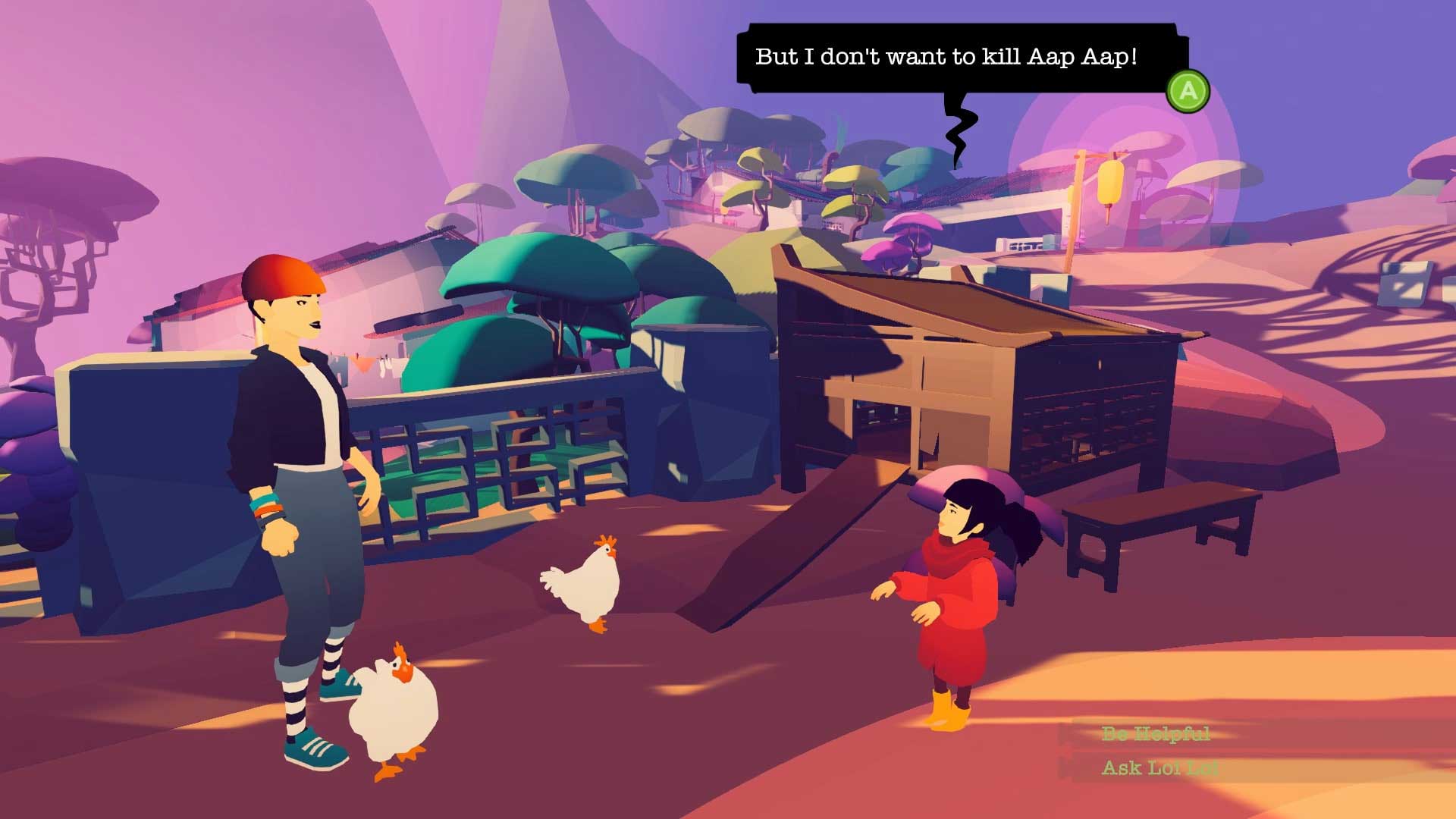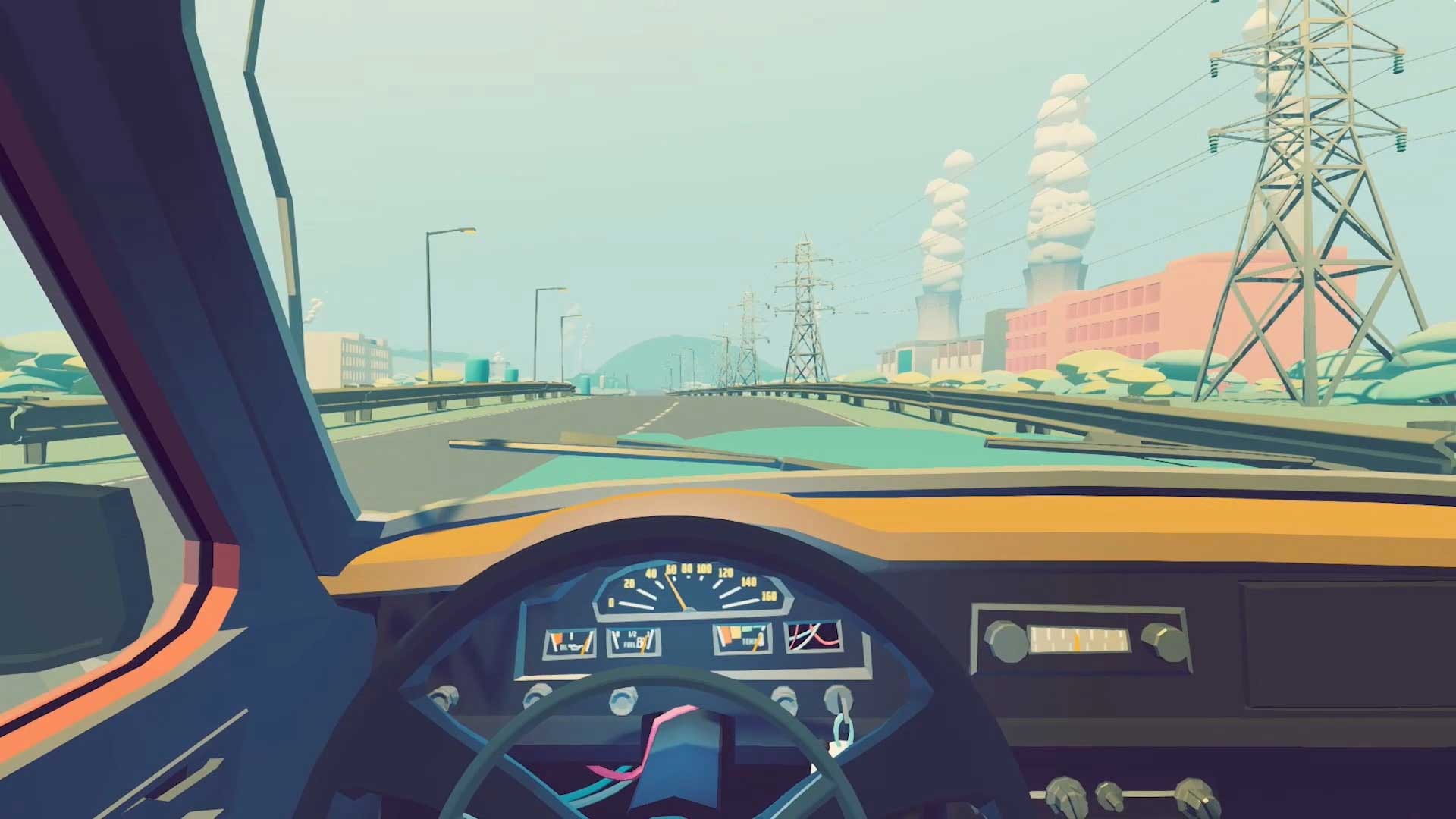Road to Guangdong review
It’s easy to get wrapped up in our own lives that we often forget about the things that matter. We worry about our jobs, about fulfilling our duties as an adult, about paying rent, planning holidays, managing debt, and everything in between. Family is the most important thing. Our partners, children, parents – when we reach the end of our lives, they will be the only ones that ever mattered. I judged Road to Guangdong too quickly. I was too put off by the clunky controls and constant micromanagement that I failed to appreciate the actual story, and after a while I began to understand what Just Add Oil Games were trying to tell me.
In Road to Guangdong, you set out on a road trip with Sunny and her grandmother, Guu Ma. Sunny headed off to university to study art and step away from the family business, but in a tragic turn of events, she returns to her home of Guangdong after the death of her parents. She finds out that the restaurant is now hers, and whilst she isn’t massively keen on the idea at first, her road trip across China opens her eyes to the importance of family. The last link between Sunny and her parents is Sandy, the broken and battered family car. It isn’t in the best shape, and it takes a lot of work to keep it from collapsing, but it’s relevance in the story is a vital piece of Sunny’s journey.

Throughout Road to Guangdong, Sunny and Guu Ma visit various family members, and through these meetings you’ll learn about your family’s deep history. Sometimes the stories you learn about are upsetting, whilst other times they’ve uplifting. From an uncle’s discovery he has a real family in America, to the hidden relationship between Guu Ma and the restaurant’s ‘accountant,’ there’s always something new to uncover. In these encounters, various text conversations open up, and if you ask the right questions, new branches of dialogue will be available. With each successful conversation, these family members will give you new recipes for use in the restaurant, and they will also accept your invitation to a family reunion – the main objective of Road to Guangdong.
These conversations can often contain walls of dialogue. It becomes laborious at times, especially when you’re going from one person to the next, but the messages of love and hope that you uncover make the time spent listening worth it. Outside of these interactions, you’ll spend a fair amount of time driving Sandy through various landscapes, from bright cities to the countryside. The visuals aren’t anything special, and much of the time it feels as though the environments are on a loop, offering the same kind of buildings and trees to look out.
Managing the upkeep of the car becomes such a chore. Not only do you need to make sure Sandy doesn’t run out of petrol or oil, but the car also needs various repairs. Mechanics are available to travel to, but with no indication of where they are located, it becomes a game of chance to see whether you’ll last or not. You get money throughout, but it costs a whopping 75 Yen to automatically travel to the nearest mechanic. Petrol runs out far too quickly, so it becomes a necessity not to drive to fast. It also took me ages to find the headlights because there’s no real tutorial that shows you how the car works.

Driving is clunky, and it isn’t the easiest to turn corners. Managing the speed isn’t obvious, and finding the right amount of pressure on the right trigger becomes a constant battle. Although many of the routes to your next destination don’t require a lot of turning, there is no mini-map or route planner. Whilst it gives you a sense of freedom, it doesn’t fill you with any confidence, especially when your wondering if the coolant light will come on, requiring you to visit a mechanic to fix Sandy, or your petrol might run out.
Whilst Road to Guangdong does suffer from various issues, its story is engaging and uplifting. The text is a little full-on, but I enjoyed learning more about Sunny and her family, and the music is soothing when you’re driving. The biggest problem was managing the car and making sure you kept it on the road. Petrol runs out far too quickly, and you’ll end up spending a lot of money to replace various car parts. You may become frustrated with it, but there’s no denying that its themes will strike a chord with you.





